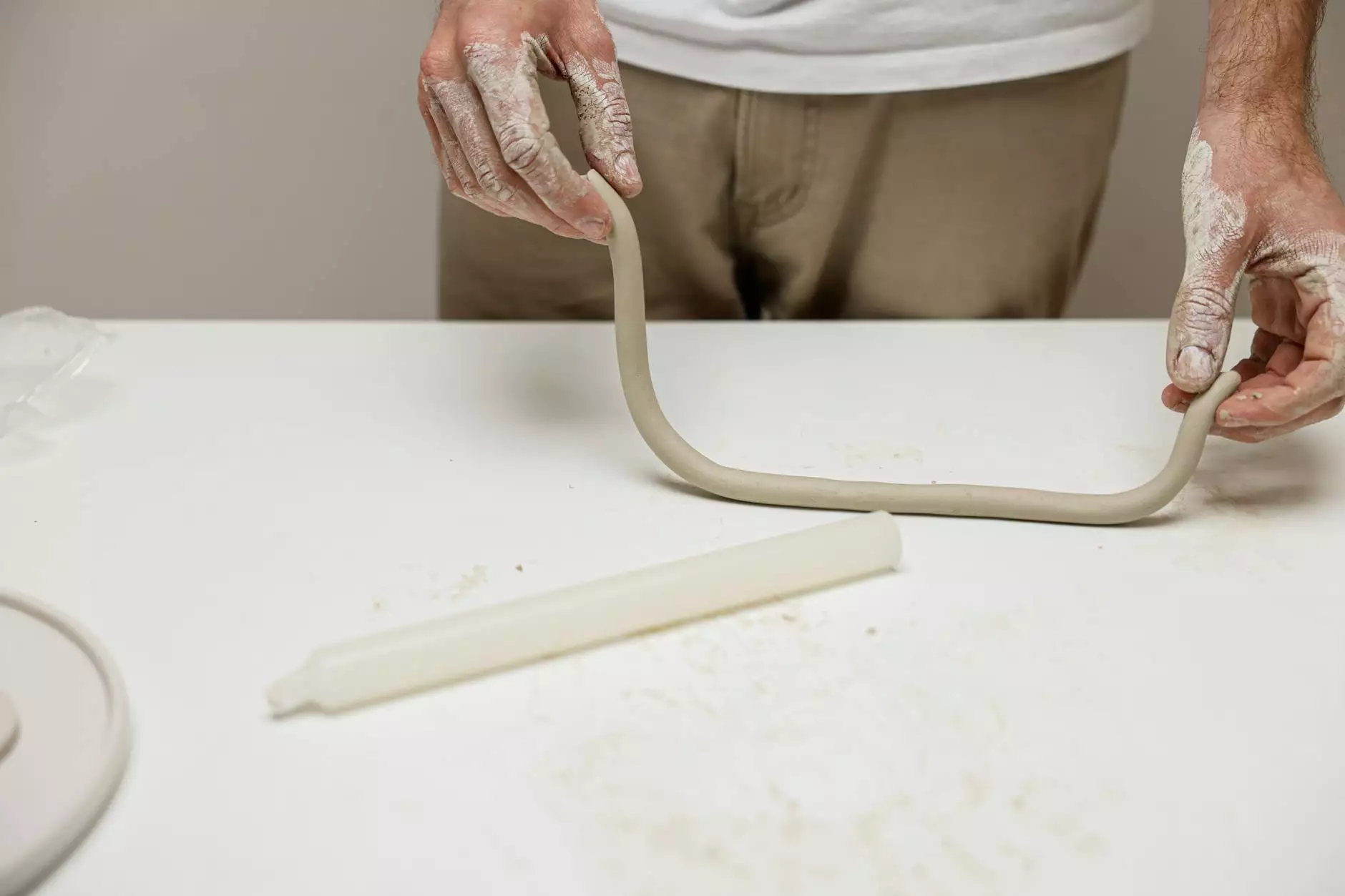Precision Injection Molds: Revolutionizing the Manufacturing Industry

Precision injection molds are an integral part of modern manufacturing, especially in industries where accuracy and efficiency are paramount. These molds are designed to produce high-quality plastic parts with minimal waste and maximum detail. In this comprehensive article, we will explore the various aspects of precision injection molds, their applications, benefits, and the manufacturing processes involved in creating them.
Understanding Precision Injection Molds
The term precision injection molds refers to specialized molds used in the injection molding process, which is a method for producing parts in large volumes. The process involves injecting molten material, typically plastic, into a mold cavity where it cools and solidifies to form the desired shape. This technique not only ensures a high level of accuracy in the dimensions of the products but also provides consistency and repeatability in production.
Key Components of Precision Injection Molds
- Mold Base: The foundation of the mold where the mold cavities and components are mounted.
- Core and Cavity: The two principal parts of the mold creating the shape of the final product; the core forms the internal features, while the cavity forms the external shape.
- Cooling Channels: Integrated systems within the mold that allow for efficient cooling of the molten material, ensuring uniformity and reduced cycle times.
- Gating System: The pathway through which the molten material enters the mold cavity, designed to optimize flow and minimize defects.
- Ejector System: Mechanisms that help remove the finished part from the mold without damage.
The Benefits of Utilizing Precision Injection Molds
Employing precision injection molds in manufacturing offers numerous advantages that can elevate the quality and efficiency of production processes. Below are some key benefits:
1. High Level of Precision and Accuracy
One of the most significant benefits of using precision molds is their capability to produce parts with tight tolerances. This precision ensures that every item meets stringent specifications, making them ideal for industries such as electronics, automotive, and medical devices.
2. Reduced Waste and Higher Efficiency
Precision injection molds are designed to produce parts with minimal scrap. This efficiency not only reduces material waste but also translates to lower production costs, benefiting both manufacturers and consumers.
3. Consistency in Production
With precision molds, manufacturers achieve high consistency across large production runs. Each part produced is nearly identical to the last, fostering customer trust and satisfaction.
4. Enhanced Design Flexibility
Modern precision injection molds allow for intricate designs and features that were previously unachievable with traditional manufacturing methods. This flexibility leads to innovation in product design and functionality.
5. Faster Production Times
The integration of efficient cooling systems and automated processes in precision molds translates to quicker production cycles, enabling manufacturers to meet market demands swiftly.
Applications of Precision Injection Molds
Precision injection molds find applications across various industries. Here are some notable examples:
1. Automotive Industry
The automotive sector relies heavily on precision injection molds for producing components such as dashboards, panels, and fasteners, ensuring both performance and safety standards are met.
2. Consumer Electronics
In the consumer electronics industry, precision molds are used to fabricate intricate parts for devices like smartphones, tablets, and laptops, where high precision is crucial for integration and function.
3. Medical Devices
The medical field demands the highest precision, especially in manufacturing components for devices such as syringes, surgical instruments, and implants, where even the slightest deviation can lead to complications.
4. Packaging Industry
Precision molds are extensively used to produce packaging components that are both aesthetically pleasing and functional, maximizing shelf space and product protection.
The Precision Injection Molding Process
The process of using precision injection molds is intricate and requires careful planning and execution. Below is an overview of how it works:
1. Design and Prototype Development
The initial step involves creating detailed designs and prototypes of the product. Advanced software tools such as CAD (Computer-Aided Design) are utilized to draft the mold and assess its functionality.
2. Mold Fabrication
Once the design is finalized, the manufacturing of the mold begins. This process often involves CNC (Computer Numerical Control) machining, which ensures that the mold is fabricated to precise dimensions.
3. Testing the Mold
Before full-scale production, the mold undergoes rigorous testing. Initial runs are performed to identify any potential issues in the cooling channels or gating system, and adjustments are made accordingly.
4. Production Runs
Upon successful testing, the mold is ready for mass production. The molten material is injected into the mold, cooled, and ejected as perfectly shaped parts, ready for assembly or packaging.
5. Quality Control
Quality assurance is a continuous process. Before the finished products are sent to market, they undergo inspection to ensure they meet established standards and specifications.
Choosing the Right Precision Injection Mold Manufacturer
1. Experience and Expertise
Look for manufacturers with a proven track record in producing precision injection molds for your specific industry. Experienced manufacturers are likely to have the technical know-how to handle complex designs and challenges.
2. Technology and Machinery
Check if the manufacturer utilizes state-of-the-art technology and machinery for mold fabrication. Advanced equipment can significantly enhance the precision and efficiency of the production process.
3. Customization Options
Every project is unique. A good manufacturer should offer customization options to tailor molds to your specific needs, ensuring optimal performance for your applications.
4. Certification and Quality Standards
Ensure the manufacturer adheres to quality management systems and certifications (such as ISO standards). This compliance is often indicative of their commitment to quality workmanship.
5. Client Testimonials and Case Studies
Research client testimonials and case studies to gauge the manufacturer’s reputation in the industry. Positive feedback and successful projects can provide insights into their capabilities.
The Future of Precision Injection Molding
As industries continue to evolve, the role of precision injection molds is expected to grow even further. Innovations in materials, automation, and digital technologies will shape the future of mold manufacturing. Some anticipated trends include:
1. Advanced Materials
New materials will enable manufacturers to create stronger and lighter products, with enhanced performance characteristics that can withstand more demanding applications.
2. Automation and Industry 4.0
The integration of automated systems and smart manufacturing technologies will optimize production efficiency and reduce human error, resulting in more accurate output.
3. Sustainable Manufacturing Practices
With increasing environmental concerns, manufacturers will likely adopt more sustainable practices, including the use of recyclable materials and processes that minimize waste.
4. Customization through 3D Printing
3D printing technology will increasingly play a role in the design and production phases of precision injection molds, allowing for rapid prototyping and intricate designs that were previously challenging to achieve.
Conclusion
In conclusion, precision injection molds are a cornerstone of modern manufacturing, offering unparalleled benefits in terms of accuracy, efficiency, and production quality. As technology advances, so too does the capability and application of these molds across various industries. Manufacturers who leverage precision injection molding can position themselves at the forefront of innovation and customer satisfaction.
For further information on precision injection molds and how they can benefit your manufacturing processes, visit deepmould.net for expert insights and services that cater to your needs.









